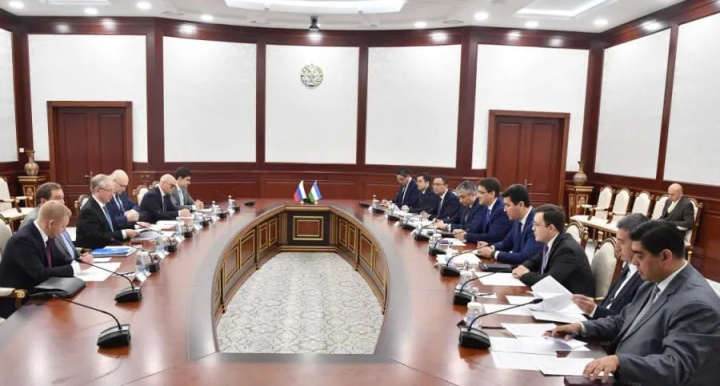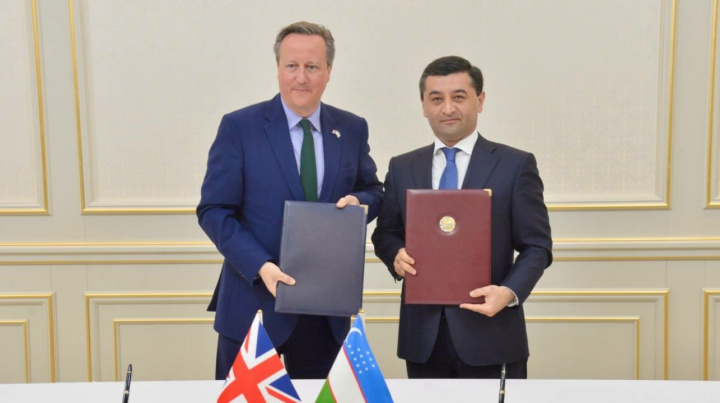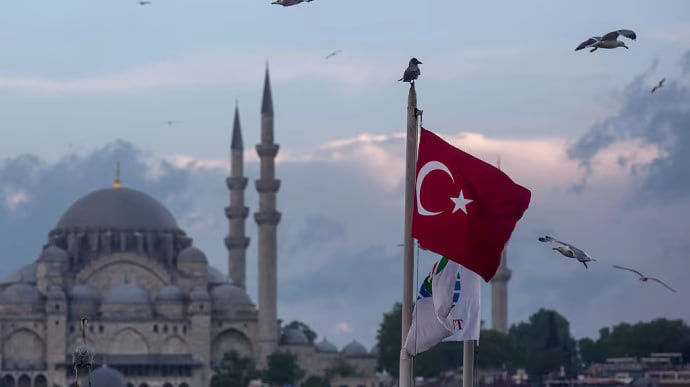On Sunday, March 31, local government elections were held in Türkiye. Kun.uz addressed questions regarding the impact of these elections on Türkiye’s internal and foreign policy to Fazliddin Madiyev, a doctoral student at the International Relations Department of Ankara Haji Bayram Veli University.
How important are these elections, especially the results in Istanbul and Ankara?
Last year's presidential election and this year's local administration elections have been widely covered and analyzed in the world media. According to official analytical statements in Türkiye, this election is going down in history as having caused a major political upheaval in the country. I can also say that indeed, the political atmosphere in Ankara has changed. April 1 could be considered a serious day of political jokes for Türkiye. This change has created an environment that will affect not only domestic politics in Türkiye but also its foreign policy.
In Ankara and Istanbul, the Justice and Development Party (AKP) has been relegated to the status of a secondary party. It can't be said that Erdoğan's presidency is at risk, mistakes can be corrected, but dominance in Ankara and Istanbul is considered dominance all over Türkiye. In these cities, AKP representatives made several mistakes, and a number of demands by the people and official institutions were not met. The party lost its balance, and the people saw that.
How does the first defeat in 22 years of President Erdoğan's "Justice and Development" party affect Türkiye’s internal and foreign policy? Why did Erdoğan's party lose?
The party also did not win in 2019, but there were several clear reasons stated. However, this time the loss was openly admitted, including by Erdoğan himself. There are several reasons for this.
We observed in the presidential elections that the people gave Erdoğan a chance. That election proved there is still hope among the public despite the imbalance and the tense political climate in Türkiye.
There are several factors. First, the ongoing economic issues that have been escalating. Second, the failure to fulfill promises made. Third, political arrogance, meaning within Erdoğan's party there was a belief that the people would support us no matter what, that we can win any vote and do anything we want, but the people punished them. Another factor was the recent dissatisfaction among pensioners, and pensioners constitute a not insignificant portion of the voters. The pensioners waited until the end, but their problems were not resolved, and Erdoğan, in his final appeal to the people, indicated that he would not be able to support them, which became the final straw, and the majority of pensioners voted for the Republican People's Party (CHP).
Türkiye conducts a multi-faceted geopolitical strategy, which is also the right approach for the current time. Throughout its history, Türkiye has engaged in conflicts with Europe and other countries, sometimes winning, sometimes losing, shaping itself in this way.
In America, Western, and Eastern Europe, various views about Türkiye exist, and this is one of the most discussed topics in Turkish policy. Europe wanted the CHP to win the presidential elections, but they supported Erdoğan's party in the internal elections. There are several reasons. Europe fears the migration of refugees that have accumulated in Türkiye to Europe, which has led to the view that “Erdoğan is necessary for us”. There is also strong sympathy towards Türkiye in Eastern Europe, but positions have not yet been analyzed.
Changes in Türkiye’s internal politics will also impact foreign policy. The relationship with neighboring countries and Europe will seriously change. Inside Türkiye, there are accumulated political motives against Europe, namely concerns about political equality and imbalance, and there are many analyses on this topic.
The CHP, having been at the helm of governance for a long time, found the weak points of the ruling party and took advantage of them efficiently. The CHP representatives are paying attention to not losing political etiquette because, as I mentioned earlier, they saw political arrogance in Erdoğan. The CHP also won in regions where the AKP had always won before, which was unexpected; overall, this election was full of unexpected results. The people expect the CHP not to lose political etiquette, namely not to become disconnected from the people and to maintain proper communication. If so, we can expect to witness serious changes in both internal and foreign policy in Türkiye.
To what extent can the candidates who won the local elections influence Türkiye’s foreign policy?
The culture of elections in Türkiye, and their importance, is high, even higher than in some of the most developed democratic countries. The people are creating today's political situation. The role of the people in both external and internal policy is significant. However, in strategic matters such as NATO, Israel, and Middle East issues, it won't always be as people say.
I think there will be serious changes concerning the issue of refugee migrants due to the influence of the people. The people are demanding this. In the elections, things happened that the AKP did not imagine, and the political climate changed drastically.
The growth of other parties in the election is being analyzed. The fate of parties that received fewer votes is also under discussion. The people are showing a need for active parties, calling for a revitalization of the political environment.
Will the emphasis on the unity of Turkic states be featured in the platforms of other parties, or is this exclusive to Erdoğan and his party?
Türkiye and the Turkic states have managed to ascend to a certain level in world politics, and I don't think Türkiye will deviate from this policy. The integration of the Turkic peoples may even intensify further, which is very important for both Türkiye and the other Turkic states. This is one of the primary issues emphasized in Türkiye’s foreign policy. Of course, there are opposing sides, but an ideology has already been formed about this. Due to the Turkic states not being economically very strong, this process will proceed slowly. Regardless of who comes into power, the issue of the unity of the Turkic states will remain a priority. There have been many losses in history, and the penalties for not having unity have been paid. Therefore, it would not be right to halt this process now.
Can we say that Istanbul Mayor Ekrem İmamoğlu has laid the groundwork for his candidacy in the 2028 presidential elections with this victory?
Yes. Erdoğan has stated that he will not participate in the next presidential election, which is an important point. Türkiye’s constitution guarantees that the first four articles cannot be changed, but there are attempts to change even this fifth article. The first four articles relate to Türkiye’s territorial integrity, sovereignty, presidential term, and its specified duration. Efforts are mostly related to the section concerning the presidency. If such a change occurs, Türkiye’s politics will transform, and elections may not hold the same significance as they do now. The public has become aware of this and has started to oppose it. This was one of the ruling party's mistakes, and it worked against them in the election. Erdoğan's announcement not to participate in the next election was also for this reason.
The CHP now also has a strong faction in parliament. The ruling party's word won't always be final anymore. There were concerns about who would be the next presidential nominee in Türkiye. But two candidates have emerged: Ankara Mayor Mansur Yavaş and Istanbul Mayor Ekrem İmamoğlu. There are these two candidates for the presidency from the CHP. But there is no one from the AKP, Erdoğan has not been able to give a positive signal to the public about who will follow him. Erdoğan's son-in-law is a possibility, but if the political processes continue in this way, his chances are very low.
The CHP's prospects can be rated highly for 2028. The party has corrected the mistakes of the AKP and demonstrated them to the people, and this was well-received. Even in regions with a strong Islamic factor that traditionally supported the AKP, the party suffered significant losses and failed to garner many votes.
The change in Türkiye’s political climate is relevant to many countries, especially Uzbekistan, as our relations have been very good lately. Our political thinking must adapt to this changing policy in Türkiye. We could also develop such a political and election culture among our people. This aspect of Türkiye is serving its development. What we most need is a population with a strong political consciousness like in Türkiye; that is the aspect we need to learn from.
Interviewed by Normuhammadali Abdurahmonov




